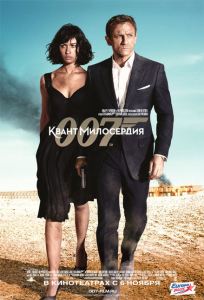Updated from previous posts.
The World Is Not Enough, the 19th film in the 007 film series made by Eon Productions, marked a transition.
Producers Michael G. Wilson and Barbara Broccoli hired a director, Michael Apted, with little experience in action movies. Apted was brought on because of his drama experience.
Apted also was charged with increasing the female audience for a Bond film.
“I didn’t understand why they picked me to do (The World Is Not Enough),” Apted told The Hollywood Reporter in an October 2018 interview.
“It turned out, they were trying to get more women to come and see it,” Apted said. “So, we really wanted to do a Bond with a lot of women in it. I was right person because I’d done a lot of successful films with women in them. But they didn’t tell me that until right before we started. When I found out, I finally understood.”
The producers also hired a new writing team, Neal Purvis and Robert Wade, to develop the story. They’re still in the world of 007 well into the 21st century.
The script development established a pattern the duo would soon be familiar with. They delivered their script, which would be reworked by other writers. In the case of The World Is Not Enough, Dana Stevens, Apted’s wife, revised the story. Another scribe, Bruce Feirstein, worked on the final drafts. Purvis, Wade and Feirstein would get a screen credit.
Meanwhile, Judi Dench’s M got expanded screen time, something that would persist through 2012’s Skyfall. The film also marked the final appearance of Desmond Llewelyn as Q. John Cleese came aboard as Q’s understudy.
Pierce Brosnan, in his third 007 outing, was now an established film Bond. In interviews at the time, he talked up the increased emphasis on drama. In the film, Bond falls for Elektra King, whose industrialist father is killed in MI6’s own headquarters. But in a twist, Elektra (played by Sophie Marceau) proves to be the real mastermind.
Q’s Good-Bye
The movie tried to balance the new emphasis on drama with traditional Bond bits such as quips and gadgets, such as the “Q boat” capable of diving underwater or rocketing across land. Some fans find the character of Dr. Christmas Jones, a scientist played by Denise Richards, over the top.
Years later, Richards did an interview with the SpyHards podcast. “Why is it on CNN that I am a Bond girl?” Richards said on the podcast, quoting her comments to her agent. The agent’s response: “Do you not know how big this movie is?”
Afterward, Richards told SpyHards, “I wanted to educate myself on the franchise” and she saw earlier films in the series.
For the actress, things were rough at times. She endured ridicule for playing a scientist. “I would go to my hotel and cry because the reviews were making fun of me,” Richards told the podcast.
Sometimes, the dual tones collided. Cleese’s initial appearance was played for laughs. In the same scene, however, Q, in effect, tells Bond good-bye in what’s intended to be a touching moment. It was indeed the final good-bye. Llewelyn died later that year as the result of a traffic accident.
The movie was a financial success, with $361.8 million in worldwide box office. Broccoli and Wilson, meanwhile, would return to the idea of increased drama in later entries after recasting Bond with Daniel Craig.
Good-bye, United Artists
The World Is Not Enough also dispensed (mostly) with the name of United Artists. UA cut the deal with Eon founders Albert R. Broccoli and Harry Saltzman in 1961 that led to the 007 film series.
Metro-Goldwyn-Mayer acquired UA in the early 1980s. But UA retained some kind of presence via corporate logos and such. (CLICK HERE for a history.)
With The World Is Not Enough, the film was branded as an MGM release, not a United Artists one. An MGM 75th anniversary logo appeared at the start of the movie. Deep into the end titles, the copyright notice listed “DANJAQ LLC” and “UNITED ARTISTS CORPORATION” as the owners of the movie. By this time, UA existed on paper only as part of MGM.
In 2019, MGM revived the UA name with United Artists Releasing, a joint venture with Annapurna, which distributed MGM and Annapurna movies in the U.S. Even so, with Bond films, the United Artists Releasing name appeared in small print on posters and wasn’t shown at the start of movies. No Time to Die had logos for MGM and Universal (which distributed the film outside the U.S.) or MGM only (in the U.S.)
Filed under: James Bond Films | Tagged: Barbara Broccoli, Bruce Feirstein, Dana Stevens, Desmond Llewelyn, John Cleese, Michael Apted, Michael G. Wilson, Neal Purvis, Pierce Brosnan, Robert Wade, The World Is Not Enough, United Artists, United Artists Releasing | 3 Comments »













